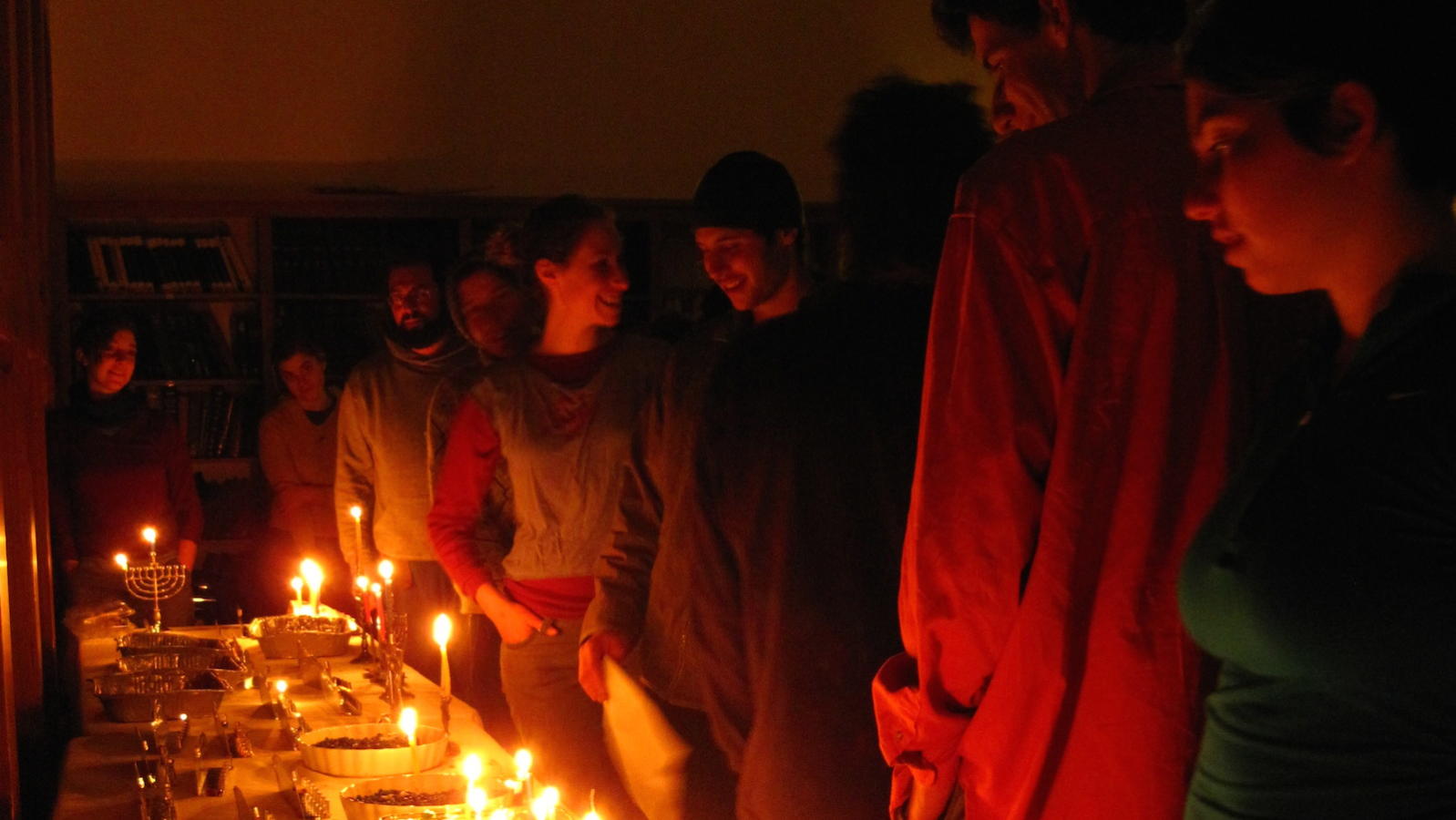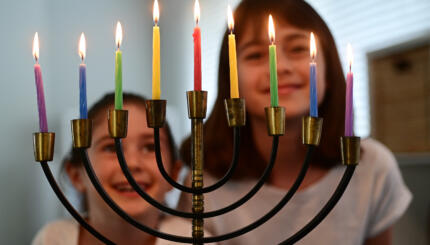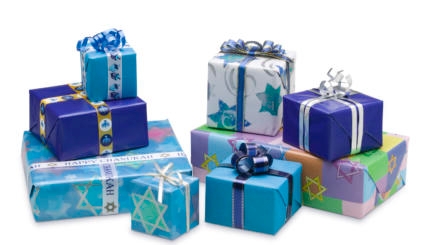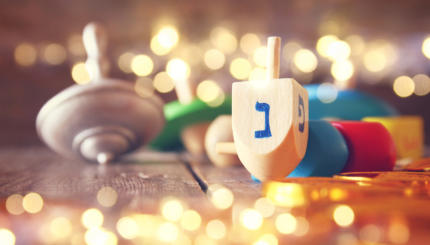Hanukkah is today a time of celebration and family gatherings, gift giving and favorite holiday foods. Underlying the festival, though, are important issues that have echoed with the Jewish people throughout the centuries.
The Struggle for Liberation in the Face of Oppression
One of the most prominent themes of Hanukkah is the ongoing struggle for liberation in the face of oppression. In the case of Hanukkah the oppression was complete, in that it attached to both religion and nationality. The Syrian-Greeks forbade Jews to practice their religion, declaring mere identification as a Jew to be a crime punishable by death. The question of a strong identity and the freedom to express it therefore became central to the holiday of Hanukkah.
Maintaining Jewish Identity
In the time of the Maccabees there was an internal Jewish debate taking place addressing the question of cultural influence. How much influence should the Jewish community accept from the surrounding Hellenistic culture? Should the Jews practice as the Hellenists do; think as they do; even change their appearance and hide the mark of circumcision in order to appear as they do? Certainly there were positive aspects to Hellenistic culture, but how much should these aspects have redefined Jewish identity? These age-old questions concerning the maintenance of Jewish identity within a larger non-Jewish culture continue to resonate in our modern world.
The second question of identity was more clearly defined. An oppressive governing authority had outlawed Judaism. The only two choices available to the Jews were to maintain in secret–and constantly threatened by discovery– their religion and identity or to openly fight the oppressive authorities in the hope of liberation. The Maccabees chose to fight. The situation is not unique to Jewish history, but we celebrate Hanukkah to commemorate the unusual outcome. Against all odds and logic the Maccabees were victorious, and the Jewish world experienced a true liberation that embodied national and religious freedom. We celebrate the process, and we celebrate its outcome.
And yet Jewish tradition recognizes that, although we can achieve a clear internal Jewish identity, the struggle to live in a society that accepts the expression of this identity varies throughout time. Ideally, Jewish tradition says, Jews should light the Hanukkah candles in a window or doorway, where they can be visible to anyone outside. This would certainly parallel the situation of victory in the time of the Maccabees, when open religious expression was salvaged. However, not all times in history are quite as inviting of that expression as others. Therefore, when there is a concern for safety, the Hanukkah candles are lit and displayed inside the house with no clear external statement. In this way and others we recognize that Hanukkah speaks of an ideal rather than a constant, reminding us that redemption is won in small, fragile doses.
The Jewish Relationship with God
There is another extraordinary component to the holiday that revolves around the Jewish people and our relationship with God. In a time when access to the Temple was blocked and the Temple itself was converted into a pagan shrine, there arose a genuine question of whether or not the absence of a functioning Temple impacted on our covenant with God. The victory of the Maccabees, although vastly outnumbered by the enemy and with far less sophisticated weaponry, answered the theological dilemma. God had expressed solidarity with the Jewish people through a historic event. Although communication through the Temple was impossible, communication occurred nonetheless. The covenant between God and the Jewish people does not reside within a building, it vibrantly lives in the world at large, in history, in intent, and in action.
Still, the theme of victory was downplayed in favor of a more spiritual, God-centered message. The Books of Maccabees were not canonized as part of the Hebrew Bible. Rather, the rabbinic message of Hanukkah may be understood through the Biblical texts and especially the haftarah (prophetic reading) chosen for this holiday: “Not by might, not by power, but by My spirit said the Lord of Hosts” (Zechariah 4:6).
At a time of the year when the days are growing shorter and there is more darkness than light, it is fitting to view this metaphorically and celebrate an instant in time when a light shone in Jewish history. The dark forces of oppression were seen as closing in, and a tiny people succeeded in forcing them back, physically and spiritually. How fitting that we light candles to connect us to this moment. Ancient issues, modern questions, and little candles provide continuity through time.
Explore Hanukkah’s history, global traditions, food and more with My Jewish Learning’s “All About Hanukkah” email series. Sign up to take a journey through Hanukkah and go deeper into the Festival of Lights.
Hanukkah
Pronounced: KHAH-nuh-kah, also ha-new-KAH, an eight-day festival commemorating the Maccabees’ victory over the Greeks and subsequent rededication of the temple. Falls in the Hebrew month of Kislev, which usually corresponds with December.



